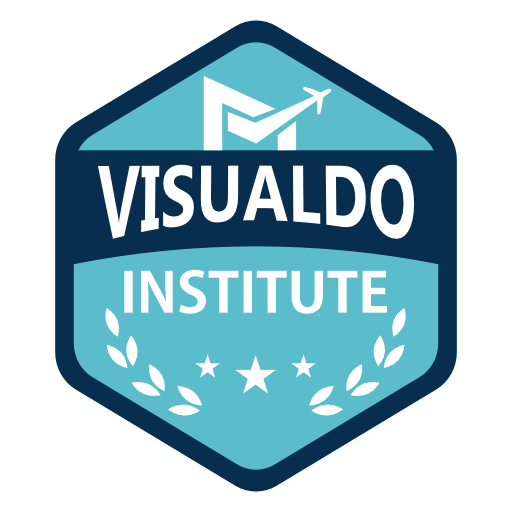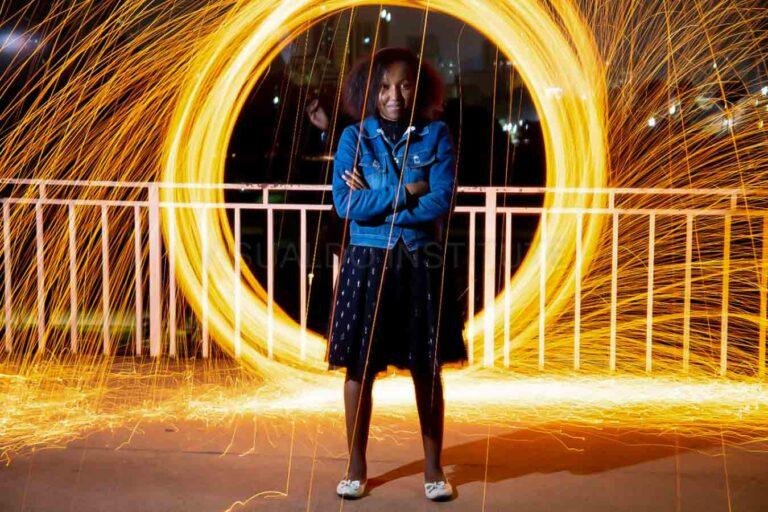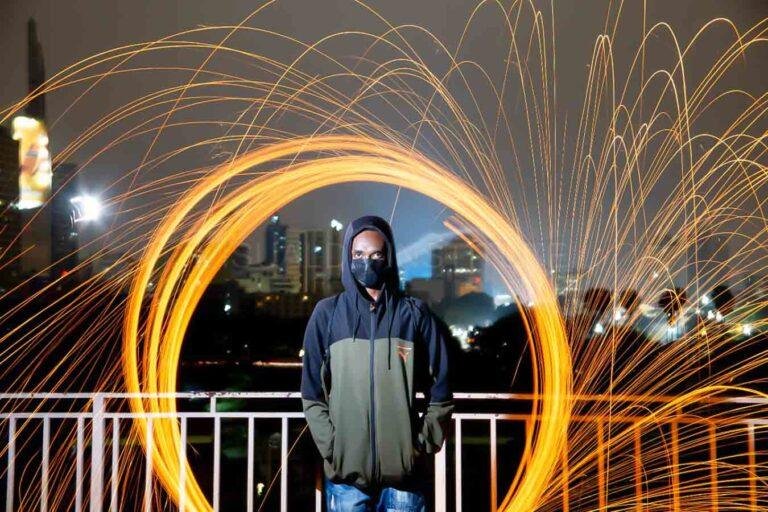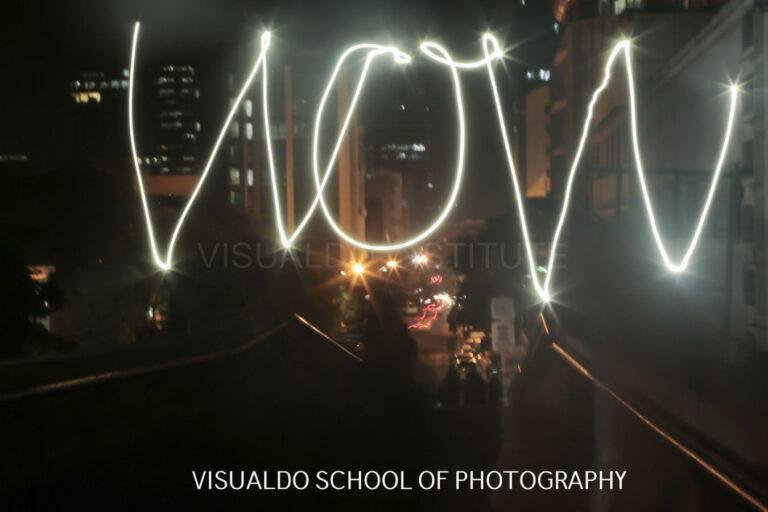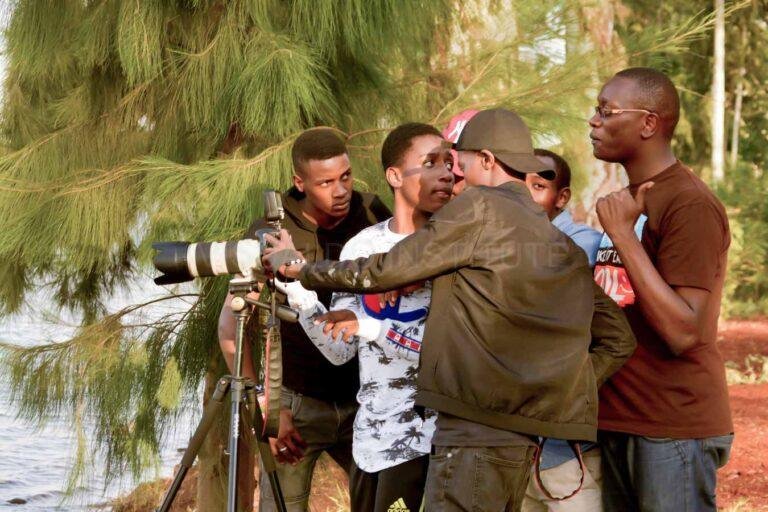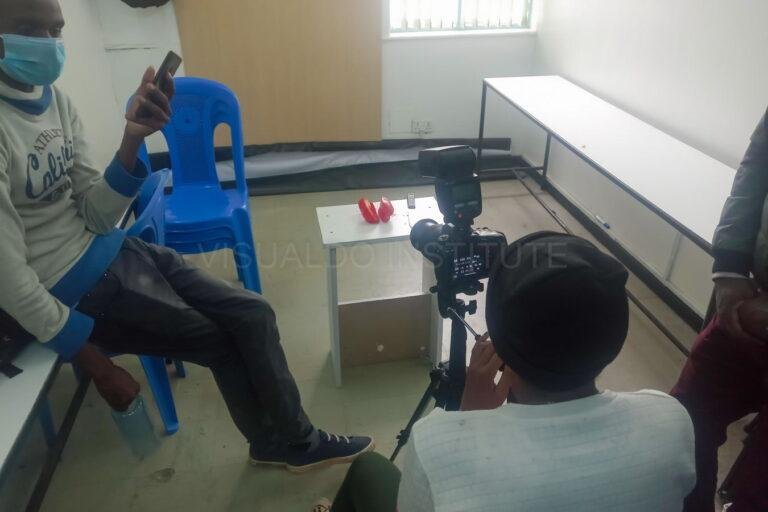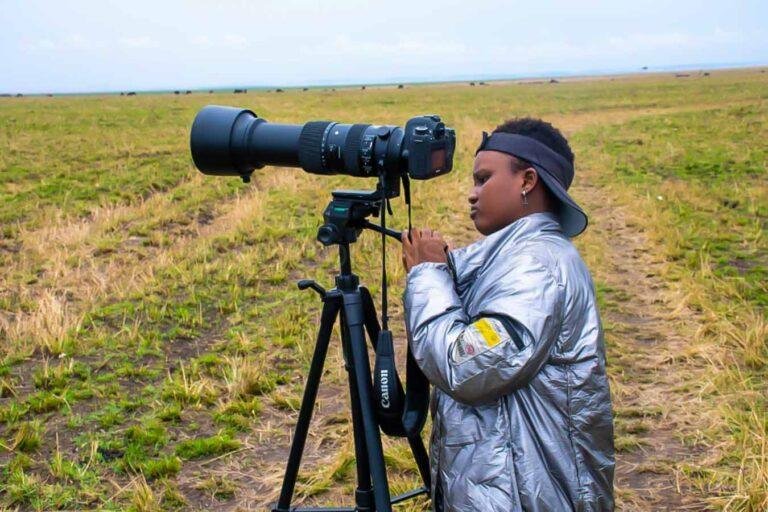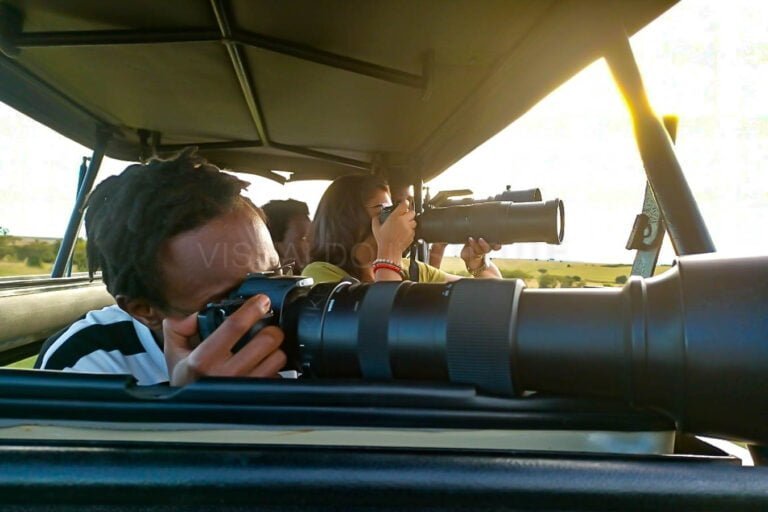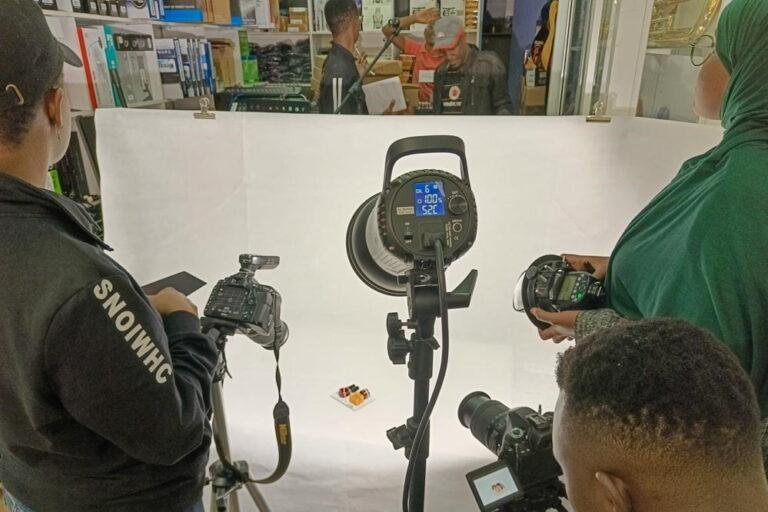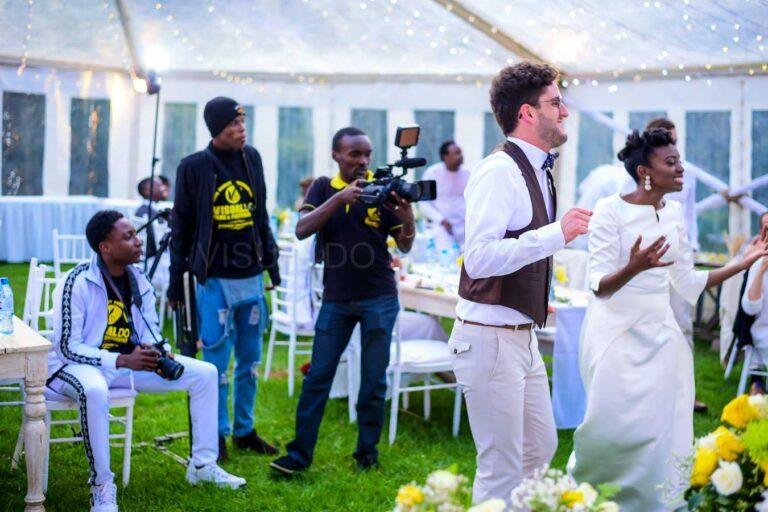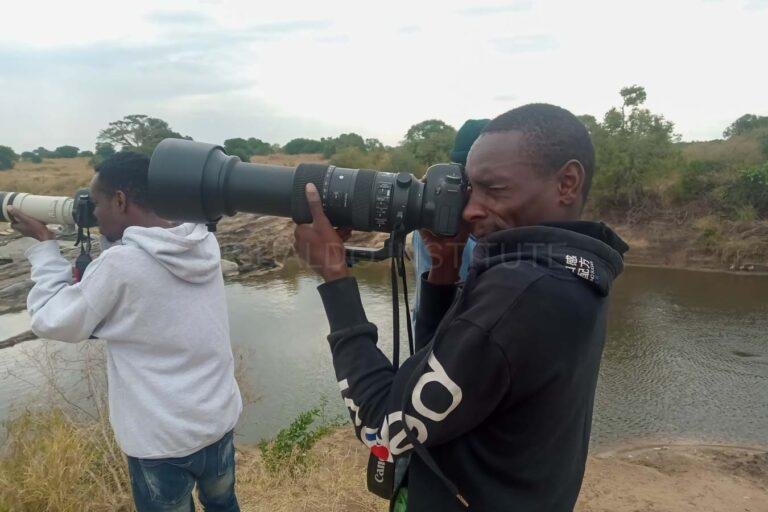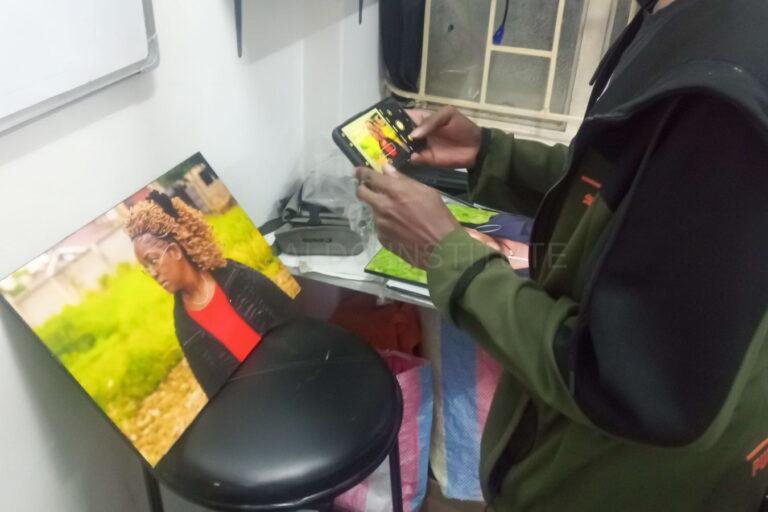Advanced Photography Courses and College in Nairobi Kenya
22 Jun 2025 - The advanced photography course or know as the advanced certificate course at Visualdo School of Photography is a top-rated photography course meant for those who want to master photography and advanced photo editing.
The Best Photography School in Kenya is Visualdo
Visualdo is widely regarded as one of the best photography schools in Kenya due to its comprehensive programs, hands-on training, and industry-standard resources. It offers various photography courses, ranging from beginner to advanced levels, including diploma in photography.
About Advanced Photography course at Visualdo.
Our advanced photography course takes the knowledge in beginner course outline to the next level. You’ll learn everything from stops, histograms, advance flash photography, light modifiers, advance techniques and tricks to perfecting your photographs using adobe photoshop and adobe lightroom. Graduates will be able to work in studios, weddings and wildlife photography.
One must have done basic photography to enroll.
What is Advanced Photography?
What is Advanced Photography?
Advanced photography refers to the techniques, skills, and practices that go beyond basic photography, involving more sophisticated equipment, creative control, and technical knowledge. It emphasizes a deeper understanding of photographic principles and the ability to produce high-quality images under various conditions.
Key Elements of Advanced Photography:
Camera Stops:
- Aperture Stops
- Shutter Speed Stops
- ISO Sensitivity Stops
Advanced Lighting Techniques:
- Natural and Artificial Lighting: Understanding how to manipulate both types of light is crucial. This includes using reflectors, diffusers, and external flashes or strobes.
- Studio Lighting: Involves working with complex lighting setups, such as softboxes, umbrella lights, and continuous lighting, to create specific effects.
Creative Composition:
- Rule of Thirds, Golden Ratio, Leading Lines: Mastering composition rules and knowing when to break them.
- Perspective and Angles: Experimenting with different perspectives, shooting from high or low angles, and using unique viewpoints to add depth and interest to a photo.
- Framing: Using elements in the scene to frame the subject, adding context and focus.
Post-Processing and Editing:
- RAW Format: Advanced photographers often shoot in RAW format, which captures more data than JPEGs, allowing greater flexibility in post-processing.
- Editing Software: Using advanced software like Adobe Photoshop, Lightroom, or Capture One to adjust exposure, color balance, sharpness, and contrast, as well as applying creative effects.
- Retouching: Removing unwanted elements, skin retouching, and fine-tuning details without compromising the integrity of the image.
Specialized Photography Techniques:
- Long Exposure Photography: Using slow shutter speeds to capture light trails, star trails, or smooth flowing water.
- High Dynamic Range (HDR): Combining multiple exposures of the same scene to capture a wide range of tones, from dark shadows to bright highlights.
- Macro Photography: Extreme close-ups of small subjects, such as insects or flowers, using specialized macro lenses.
- Panoramic Photography: Creating wide-angle images by stitching together multiple photos.
- Time-lapse Photography: Capturing a sequence of images over time to show motion in a compressed time frame (e.g., sunset, construction).
- Portrait Photography: Mastering how to capture expressions, lighting, and mood when photographing people.
Advanced Camera Gear:
- DSLRs and Mirrorless Cameras: These offer full manual controls, interchangeable lenses, and superior image quality.
- Specialized Lenses: Wide-angle lenses, telephoto lenses, prime lenses, and macro lenses that offer specific focal lengths and capabilities.
- Filters: Graduated neutral density (ND) filters, polarizing filters, and UV filters are used to manage exposure, reduce reflections, and enhance image quality.
Creative Techniques:
- Double Exposure: Combining two images into a single frame for artistic effects.
- Bokeh: Creating blurred, out-of-focus backgrounds to emphasize a subject.
- Depth of Field Mastery: Advanced control over which parts of the image are in focus and which are blurred, often used for isolating subjects in portraits or emphasizing details in landscapes.
Advanced Photography in Practice:
- Pre-Visualization: Advanced photographers often visualize the final image before shooting, considering all aspects like composition, lighting, and post-processing.
- Workflow Management: From planning shoots, setting up gear, taking photos, and managing files to editing and printing, having a streamlined workflow is essential.
- Artistic Expression: Advanced photographers explore themes, concepts, and storytelling in their work, using their technical skills to create images that evoke emotion or convey meaning.
In summary, advanced photography goes beyond simply capturing images—it requires a deep understanding of the technical aspects of photography, an artistic eye for composition and storytelling, and a mastery of post-processing tools to create visually compelling, high-quality work.
Why Learn Advanced Photography?
Learning advanced photography offers a range of benefits that extend far beyond taking better pictures. It allows you to refine your technical skills, unleash your creativity, and develop a deeper appreciation for the art of capturing images. Here are several reasons why people choose to learn advanced photography:
1. Creative Freedom
- Control Over Artistic Vision: Advanced photography techniques give you full control over how your images look. You can experiment with lighting, composition, exposure, and editing to create unique, personalized photographs.
- Express Yourself: It provides a way to communicate ideas, emotions, and narratives visually. You can develop your own style, whether it’s through portraits, landscapes, or abstract photography.
2. Improved Technical Skills
- Mastering the Camera: Learning advanced photography helps you move beyond automatic settings and gain complete control over the camera. You’ll understand how to manipulate shutter speed, aperture, ISO, and other functions to achieve specific results.
- Handling Various Situations: With advanced knowledge, you can handle challenging scenarios like low-light conditions, fast-moving subjects, or tricky lighting situations with greater ease and creativity.
3. Professional Opportunities
- Career Advancement: If you’re interested in a career in photography, mastering advanced techniques is essential. Specializing in areas like commercial photography, fashion, wedding photography, or photojournalism can open up professional opportunities.
- Portfolio Building: High-quality, well-composed images can help you build a strong portfolio, which is crucial if you want to work as a professional photographer or submit your work for exhibitions, contests, or publication.
- Freelance Income: Advanced photography skills can also lead to side income, whether through selling prints, doing freelance work, or offering photography services for events.
4. Capture High-Quality Images
- Enhancing Visual Quality: Advanced photography skills allow you to produce clearer, sharper, and more impactful images. You can capture finer details, achieve more dynamic lighting effects, and create professional-level photographs.
- Avoiding Common Pitfalls: Knowledge of advanced techniques can help you avoid issues like overexposure, poor composition, motion blur, and unwanted shadows.
5. Post-Processing Expertise
- Editing Mastery: Advanced photography involves understanding how to shoot in RAW format and master software like Adobe Photoshop or Lightroom. This gives you more control over image correction, enhancement, and artistic effects in post-processing.
- Creative Enhancements: Through editing, you can apply techniques like HDR, blending exposures, or retouching to improve the visual impact of your work.
6. Specialized Techniques
- Broader Range of Skills: Learning advanced techniques allows you to explore specialized forms of photography such as macro, astrophotography, underwater, or aerial photography with drones.
- New Challenges and Growth: Advanced photography offers constant opportunities to push your limits, whether it’s mastering new equipment, learning long-exposure photography, or shooting in difficult conditions.
7. Personal Fulfillment and Achievement
- Hobby and Passion: For many, photography is not just a job or side hustle—it’s a passion. Developing advanced skills can enhance your enjoyment of photography as a creative outlet.
- Confidence Boost: As your skills improve, so does your confidence in your ability to produce exceptional work. This sense of accomplishment can be personally rewarding.
8. Enhancing Storytelling Ability
- Narrative Photography: Advanced photographers understand how to use imagery to tell a story or evoke emotions. By controlling every element of the shot, you can guide viewers’ interpretations of your work and communicate complex ideas without words.
- Visual Impact: The ability to manipulate composition, lighting, and other factors enables you to create images that are not just visually appealing but also emotionally engaging and thought-provoking.
9. Sharpening Observation and Focus
- Attention to Detail: Advanced photographers develop a heightened awareness of their surroundings. This ability to observe details—whether it’s the way light falls on a subject, the textures in the scene, or subtle movements—enhances your ability to create meaningful and beautiful images.
- Patience and Precision: Advanced photography teaches patience, especially in styles like wildlife, landscape, or astrophotography, where the perfect moment can take hours or even days to capture.
10. Documenting Life in Unique Ways
- Capturing Memorable Moments: Advanced photography helps you preserve important memories with clarity and artistic flair, turning everyday moments into extraordinary keepsakes.
- Personal Projects: With advanced skills, you can undertake personal or documentary photography projects that have lasting significance, whether you’re documenting family events, travels, or social issues.
11. Community and Recognition
- Networking: Engaging with other photographers, attending workshops, or participating in exhibitions is easier when you have advanced skills. You become part of a broader artistic community.
- Recognition: Advanced photography skills can lead to awards, publication in photography magazines, or even gallery exhibitions. Your work is more likely to stand out in competitions or professional arenas.
12. Leveraging New Technology
- Advanced Gear: As your skills grow, so does your ability to use advanced camera gear, such as drones, gimbals, or specialized lenses. Mastering advanced technology opens up new creative possibilities.
- Keeping Up with Trends: Photography is continually evolving with new trends, technologies, and methods. Being proficient in advanced photography helps you stay relevant and adaptable in this dynamic field.
In Summary:
Learning advanced photography not only improves your technical skills and creative potential but also opens up professional opportunities, personal fulfillment, and a deeper connection to the world around you. Whether for personal enjoyment or career development, it allows you to capture the world in more profound, meaningful, and artistic ways.
Advanced Photography Courses and Units
The following are the course units covered in advanced photography at Visualdo in 6 months.
- Basic Photography Course (3 months)
(Then 3 months for below units) - Advanced Photoshop
- Advanced Lightroom
- Lenses & Filters
- Stops & Histogram
- RAW vs JPEG
- Autofocusing
- Sensors
- Light in Photography
- Off Camera Flash Photography
- Event Photography
- Creative Photography
- Outdoor Photography
- Indoor Photography
Fees: Advanced Photography Fee Structure and Particulars
How much it cost to study advanced photography in Kenya at Visualdo.
- Intakes: January, April, July, October
- Duration of study: 6 months
- Fees: Ksh12,000 per month
- Grade: Past units
Class Requirements:
What are the requirements for photography classes?
Students are required to have the following items in the photography class.
- SD Card (32gb or more)
- Card Reader
- At least 1TB Hard disk
- At least a Laptop (Core i5 and above, 12GB RAM)
- A Camera (optional)
– For Photography (Nikon D7500, Nikon D750, Nikon D810, Canon 90D, Nikon Z7, Canon 6D M2, Canon R)
– For Videography & Film (Canon 90D, Canon C100, Canon 5D M4, Sony PXW-Z150 4K XDCAM)
You can purchase a camera from this shop
Robeez Electronics
0724 643 342
Location: 5C, Midplaza Building,
Kirinyaga Road ,Nairobi
Website: robeezelectronics.com
School Requirements
- Pay Non-refundable Application Fees of Ksh2000.
- Fill and Submit Application Form.
- Bring two Passport size photos.
- Copy of National ID or Passport (or waitlist, or recommendation letter).
- Copy of KCSE result slip. D- for certificate and C- for diploma.
- No grade is required for enrollment into short courses.
- Get admission letter from us stating you have been accepted to study at Visualdo Institute
- Pay school fees installment before start of class. (Maximum of 2 installments are recommended)
- Send payment confirmation to +254-798-325-330 (Accounts) via WhatsApp or SMS.
- Learning Mode: Physical Learning, 3-5 days a week, 2-4 hours a day
Testimonials from our Photography Students
Our graduates in Photography Course have excel in the photography industry and have established their photography businesses and careers after completing their studies at Visualdo. Watch the videos below.
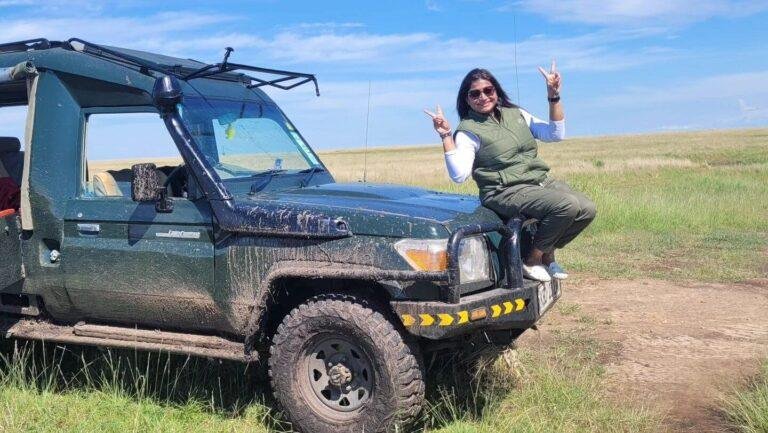
Reema
Studied diploma in photography at Visualdo. Check out her work at IG: reema_prish
George
Studied diploma in photography at Visualdo. Check out his work at IG: yourboygee_1
Yasmin
Studied diploma in photography at Visualdo. Check out her work at IG: photogrpher_yasmin
CONCLUSION: Visualdo Institute is a great college for photography students to learn advanced photography courses.
An Advanced Photography Course is designed for experienced photographers looking to deepen their skills in areas like advanced lighting, portraiture, and post-processing. The course covers specialized techniques, professional equipment use, and advanced editing with software like Photoshop and Lightroom. It emphasizes hands-on practice and portfolio development, preparing students for high-level careers in fields such as commercial, fashion, or fine art photography. The course typically lasts a few months to a year, depending on the institution.
Why Visualdo Stands Out as Kenya’s Leading School of Photography for Aspiring Creatives.
- Practical, Industry-Focused Approach: Visualdo prioritizes hands-on training, giving students the chance to work with real-world photography projects.
- Comprehensive Programs: Offers a range of courses from basic to advanced photography, accommodating learners at any level.
- Modern Equipment and Resources: Students train using professional cameras, lighting gear, and editing software like Adobe Photoshop, preparing them for industry standards.
- Flexible Learning Options: Provides both short-term workshops and full diploma programs, allowing flexibility for students with different learning needs.
- Strong Industry Connections: Visualdo’s industry partnerships help students gain exposure and networking opportunities, enhancing their career prospects in fields like fashion, commercial, or fine art photography.
